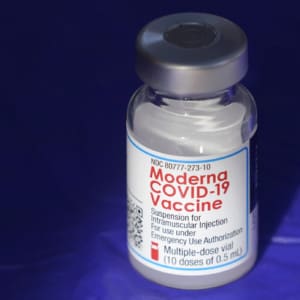Angela Merkel’s presumed successor in the post of German Chancellor, Armin Laschet, has a few problems just weeks before the German parliamentary elections. Preference for the CDU/CSU party (also called “Union”) led by him has been declining recently. According to a survey published by the Forsa company, the party lost three percentage points in a week, and currently, only 23 percent of voters would vote for it. Although it is still at the forefront, current numbers show the possibility of completely different post-election coalitions.
The survey was conducted from 3 to 9 August on 2,509 respondents. Another Kantar survey published by Focus shows very similar results, except that there is only one percentage point difference between the CDU/CSU and the Greens.
The government’s CDU/CSU now has only 23 percent voter support, while in January the figure was 36 percent. The Greens have halted the decline of recent months and would be elected by 20 percent of voters, while social democracy (SPD) is strengthening and catching up with the Greens. With the current 19 percent, the SPD will reach its best result since April 2018. Support for anti-immigration AfD remains unchanged at 10 percent. The smaller liberal FDP lost one point (12 percent), as did the communist Linke (7 percent).
These results of the survey do not look good for the forgettable leader of the CDU/CSU Laschet, as they would allow the formation of a narrow majority green-red-red government coalition, which is already visible in the capital and the federal state of Berlin. AfD is described as unacceptable to the coalition by other political parties. Mathematically, neither the existing grand coalition of CDU/CSU and SPD nor the coalition of CDU/CSU and the Greens is possible.
According to the national flags, the so-called Jamaican coalition – i.e. the Union, the Greens, and the FDP – could be formed, and the so-called German coalition – the Union, the SPD, and the FDP – could also be created. Both would have strong support in the Bundestag, with 454 and 445 deputies. Perhaps there would be a so-called Ampel coalition (Greens, SPD, and FDP) with 417 seats and also the aforementioned green-red-red “alliance” with 376 seats. At the same time, the government majority needs the support of 374 members of the Bundestag.
Laschet’s popularity doesn’t look very good either. If the Germans could elect their chancellor directly, 26 percent would currently elect SPD leader Olaf Scholz, 16 percent would vote for Greens leader Annalena Baerbock, and 12 percent would vote for Laschet.
Another Kantar survey published for Focus magazine shows very similar results, except that there is only one percentage point difference between the CDU / CSU and the Greens. It attributes 22 percent for the Union, the Greens 21 percent, the SPD 19 percent, the FDP 12 percent, the AfD 11 percent, and Linke 7 percent.
Title image: In this Jan.25, 2021 file photo Armin Laschet, chairman of the German Christian Democratic Union, CDU, addresses the media during a press conference at the party’s headquarters in Berlin, Germany. The center-right candidate in line to succeed Angela Merkel as chancellor in Germany’s upcoming election apologized Friday for failing to credit a source in a 2009 book he wrote about immigration.(AP Photo/Michael Sohn, file)






